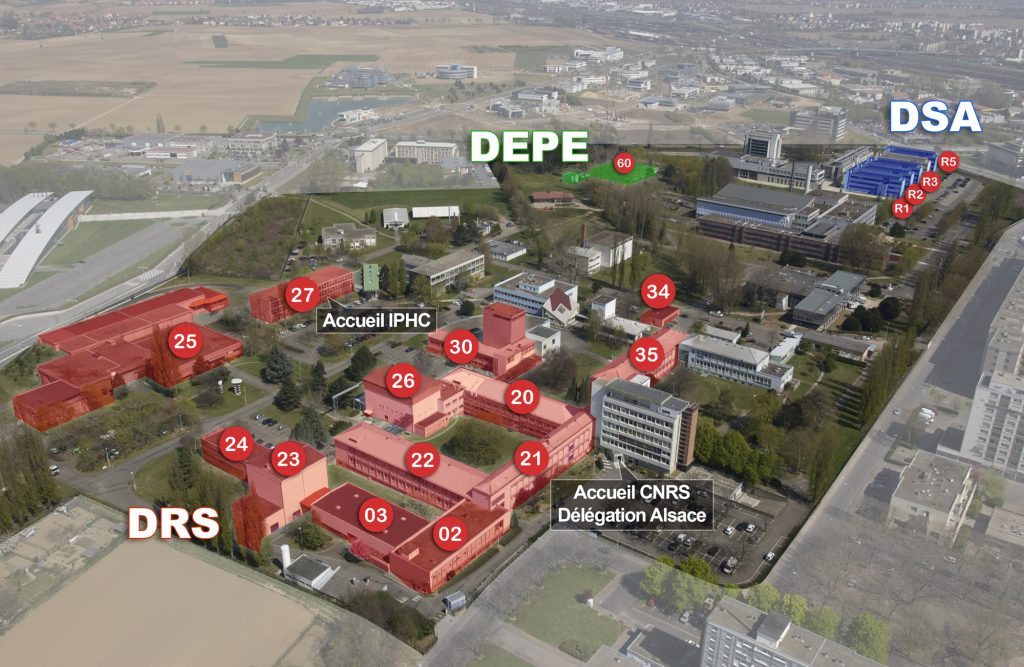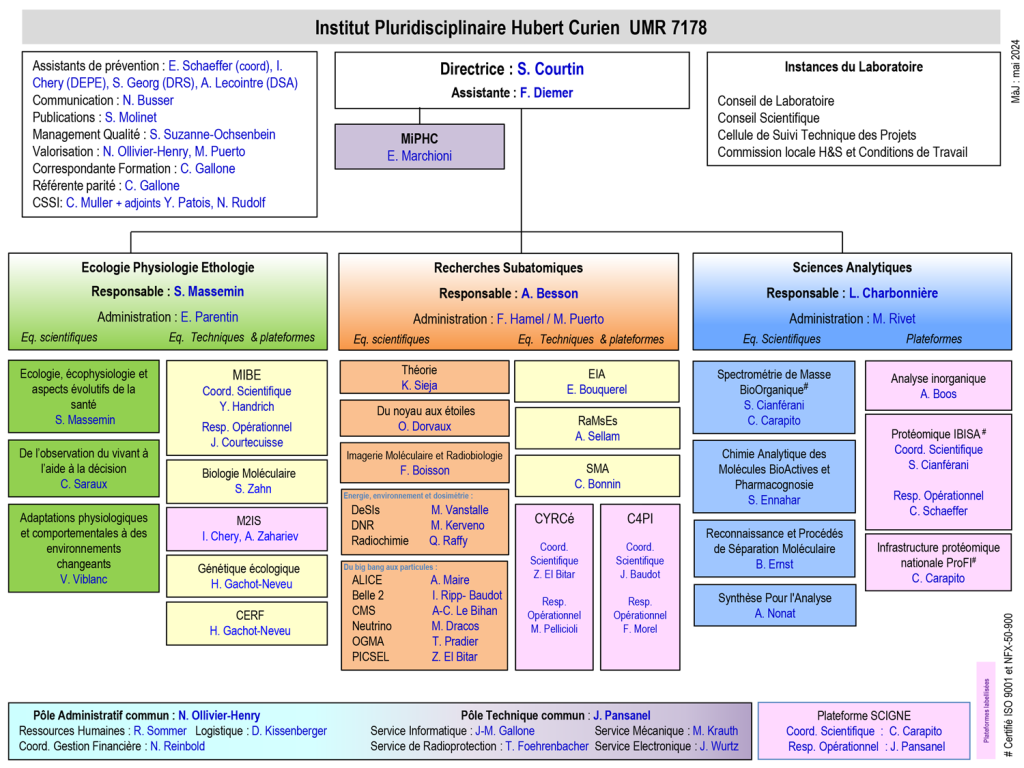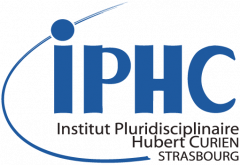Mis à jour le 26/07/24

Identity
The IPHC is the result of a merging of an institute of subatomic physics, an analytical chemistry laboratory and an ecophysiology centre. These three units have chosen to combine their scientific actions and know-how, with the aim of advancing each discipline by setting up collaborations at the interfaces. The IPHC’s 400 staff develop multidisciplinary programmes with scientific instrumentation as their foundation, while continuing to conduct research at the highest international level in the respective scientific fields of each department.
Instrumentation developments are key to the success of the IPHC. The large number of engineers, technicians and administrative staff (nearly 160 agents) allows a considerable impact on scientific projects thanks to their expertise and responsiveness.
The laboratory is structured into three scientific departments:
▪️DEPE – Département d’écologie, physiologie et éthologie
Head of department: Sylvie Massemin
The department of ecology, physiology and ethology studies the adaptive strategies of animal species in the face of natural or anthropogenic environmental constraints. Ecophysiological, behavioral, ethological and demographic monitoring is carried out on heritage, exotic or even human species, in the natural environment, in a controlled environment and in the laboratory. The aim is to assess the ability of species to survive in a rapidly changing world and to provide a scientific basis for decision-making.
▪️DRS – Département de recherches subatomiques
Head of department: Auguste Besson
By probing the properties of the subatomic constituents of matter and their interactions, physicists attempt to understand worlds from the infinitely large to the infinitely small. This theoretical and experimental field of investigation explores fields as varied as nuclear physics, particle physics and astroparticle physics. The scientific skills of the subatomic research department are also expressed in more applied fields, often at the border between disciplines, such as radiochemistry and radiation protection. The department also develops multidisciplinary research on molecular imaging and the improvement and control of hadrontherapy treatment plans.
▪️DSA – Département de sciences analytiques
Head of department: Loïc Charbonniere
The purpose of the Analytical Sciences Department is to develop new analytical tools that will allow tomorrow to better understand the interactions of man with his environment (pollution, food, etc.) and to diagnose and image the diseases that affect us. To achieve this, the DSA relies on unique skills to separate molecules, analyze them and understand their functioning and properties and, if necessary, create new ones that are better suited.
Management team
The laboratory is headed by Prof. Sandrine Courtin. She is supported in this mission by scientific managers for each department, as well as a technical director and an administrative and financial director.
Laboratory Council
The Scientific Council of the IPHC is composed of the Director, the scientific heads of the departments and members appointed among the researchers and teacher-researchers of the laboratory. The Scientific Council’s mission is to advise the Director of the laboratory on scientific choices relating to the prospective, creation, life and suppression of research themes and projects, as well as to the follow-up of selected operations. The meetings consist of an open session of public presentation, followed by a closed session.
Scientific Council
The Scientific Council of the IPHC is made up of the Director, the scientific heads of the departments and members appointed from among the researchers and teacher-researchers of the laboratory. The mission of the Scientific Council is to advise the Director of the laboratory in the scientific choices relating to the prospective, the creation, the life and the deletion of the themes and research projects, as well as the monitoring of the operations selected. Meetings consist of an open public presentation session, followed by an in camera discussion. The statements of conclusions of the Scientific Council are distributed on the intranet.
Organigram

Contact and access
See: Contact & Access
